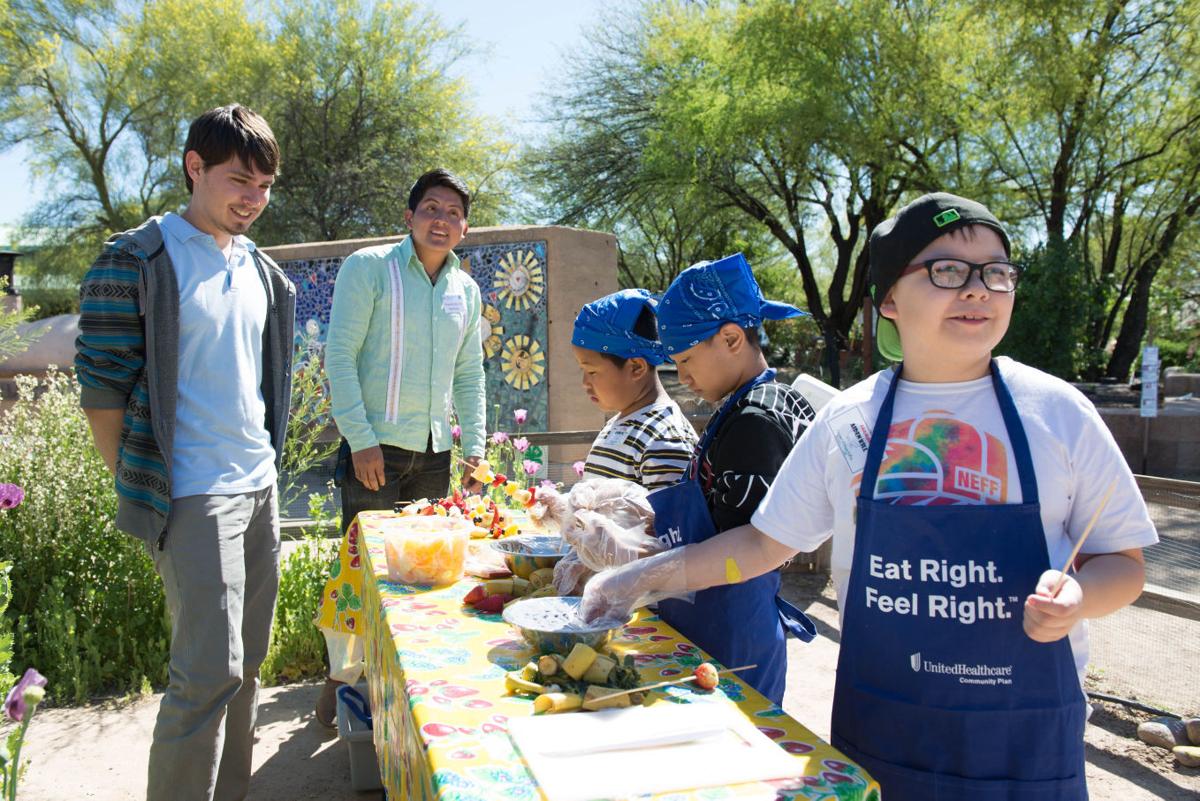A grant from United Healthcare is helping the University of Arizona’s public education arm teach young students about health and nutrition.
The 4-H youth development division of the university’s cooperative extension was awarded $55,000 for its Food Smart Families program, which partners with schools in Pima, Cochise and Santa Cruz counties.
The 4-H is a youth development organization working with land grand universities’ cooperative extension systems. The H’s stand for head, heart, hands and health.
The Food Smart Families program works mostly with schools that have 50 percent or more free and reduced lunch-eligible students, said Natalie Shepp, the program coordinator.
Some Tucson-area schools benefiting from this program are Los Amigos and Walter Douglas elementary schools and City High School, she said. The program is free to the schools.
Food Smart Families, which is expected to reach nearly 6,000 people around the state, teaches students how to eat healthy without breaking the bank and facilitates events so that the students can take what they learned home to their families, she said. The program seeks to reach the parents through the kids.
“The kids are instigators of change toward habits at home,” she said.
Other activities of the program include simple food preparation, food budgeting and buying healthy food with food stamps, she said. Gardening is incorporated in some schools.
Food Smart Families and Tucson Village Farm hosted a hands-on event Thursday, when more than 25 students in third, fourth and fifth grades visited the farm to engage in hands-on activities.
Nutrition and health education are particularly important in a time of rising obesity rates, Shepp said.
“We have a serious health problem in the country,” she said. And the problem is exacerbated among low-income youth.
United Healthcare, a partner that gave money to support the program, has contributed more than $3 million to 4-H programs in 13 states since 2011, said Jesse Eller, executive director of United Healthcare Community Plan Arizona Medicare.
“We really want to develop and help support healthy families and healthy communities,” he said.





